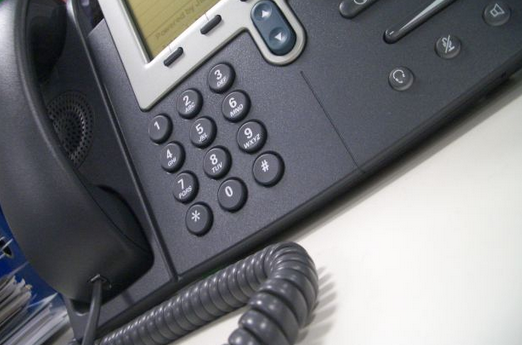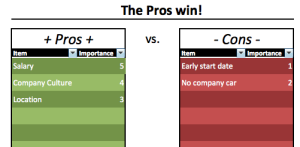
In my junior year of college, I wanted more money and I wanted sales experience.
But, I didn’t have a completely free schedule to get a sales internship. My work options were narrow because of my classes, student organization responsibility, and other extracurriculars.
I searched around and found the highest paying job on-campus: a position at a call center for Miami University’s Annual Fund. The Annual Fund relies on alumni and parents’ financial contributions to fund student scholarships, endowment, etc.
In other words, the people who relentlessly call your parents and you (as a senior and after you graduate) asking for money to support your college.
Plus, the position only required nine hours a week (two three-hour shifts during the week from 6 to 9pm, and one Sunday shift from 2 to 5pm or 6 to 9pm—with voluntary options to work more). The flexibility and the manageable work hours meshed beautifully with my schedule.
Although not technically sales—since we were not selling a service or product, but rather asking for a contribution—I figured it’s close enough to my two requirements: more money and sales experience.
I didn’t know what I got myself into.
Perks Of A Call Center Job
After understanding the call script, doing a couple mock conversations with coworkers, and getting familiar with the automatic-dialing computer and phone, I started calling people. Below are the aspects of the job that I enjoyed most as a college student.
1. Improved career skills
Through close to 100 phone conversations each day, you’ll have ample opportunity to practice communicating with people. Call center reps also gain experience improving their negotiation skills, problem-solving, and productivity.
When you make a pitch for alumni or parents to give money, and they say no, you’ll have to navigate to another point and then do a second ask to contribute. This tests your negotiation skills, which is hard to find the right degree of aggression and patience. Even when they do decide to give, I had to negotiate to prove that our system is secure to take their credit card information.
Besides the speaking role, you need to multi-task to type information on the computer (like updated address, change in last name, and call notes). When the conversation ends, the computer logs how many seconds it took you to code the call and move on to the next one. Productivity counts here because the quicker you code calls, means more total calls, which equals more money.
No matter what you do after school, many of these skills will transfer to your future career.
Also, working at a call center in college can give you a prime resume experience for applying to sales positions after graduation. Succeed on the phone and build a relationship with your boss for a great recommendation.
2. Social environment
Good conversations happen all the time in a call center. On the phone, it can be exciting to talk to people from different states across the country in urban, suburban, and rural areas. Since every person is different, every conversation is different.
My favorite part about calling is helping people remember and share their glorious days in college. You’ll get anything from what they used to do when they partied, to how they met their spouse, and outrageous examples of how the times were different when they went to school.
Plus, the call center is a social environment in itself with your coworkers. Talking with your coworkers while the phone is dialing and hearing about their interesting conversations can make the job feel less like work, and more like a paid hang out.
In my college call center, between calls, we passed time by talking about school, girls, guys, parties, and rumors. We also played Connect Four, cards, and some people doodled. Many jobs don’t offer you that freedom.
3. Pays decently well
As I said, the call center position was the highest paying on-campus job at my school. The per hour rate is decent, but there are also raises for staying with the company at certain monthly markers, and performance bonuses.
Glassdoor.com lists call center hourly wages at around $10 to $14, with the median being close to $12. This certainly won’t make you rich, but the skills gained at a call center can lead you to future wealth.
Difficult Times And Periods Of Dejection
 Like in any job, a call center job has its negatives, too. Most complaints from coworkers fall under the rudeness of people on the phone, or when they only received voicemail for what seems like an hour straight.
Like in any job, a call center job has its negatives, too. Most complaints from coworkers fall under the rudeness of people on the phone, or when they only received voicemail for what seems like an hour straight.
Breaking it down, there are two common scenarios for getting crap on the phone.
One scenario is you messed up (by misunderstanding them, not communicating well, or pushing for them to give after they just said no). In situation two, someone else made a mistake that is out of your control and you’re bound to have a terrible conversation because of it.
For example, especially as a new caller, you’re bound to fumble a bit and make errors as you get familiar with the job. You might ask for a contribution without establishing enough rapport, ask a second time for money right after they said no the first time, or accidentally leave your microphone muted to start the call.
Yet, other times the conversation is a trainwreck because of your coworkers mistakes or a force outside your control.
For example, a coworker would call an alumni who already made a contribution two months ago. So, they request a callback in six months. But, this coworker decides to code a callback in one month instead. Only one month passes and then the system has you call this person.
Then, when the alumni hears from you five months early, they are instantly pissed off since you totally ignored their wish. Another force outside your control is when an alumni or parent is having a miserable day, and target you as the punching bag. But, that’s pretty rare.
Besides getting heat on the other side of the phone, there are also times of dejection. Multiple shifts I coded hundreds of phone calls as answering machine and the only pick ups seemed to want a callback later. Other times the system placed me in a calling pool of people who have never given and express they never will. So, I went an entire three-hour shift without a single pledge to the fund. In these moments, you can’t help but feel like your time is better spent elsewhere.
For the reasons above, laziness, or a busy schedule, I know multiple students who quit after a couple of weeks.
A Memorable Moment
There are many memorable moments in my 12 months working in a call center. But, nothing as nuts as this one.
One caller spoke to an elderly woman and asked for her husband. The woman said he died a year ago.
This caller then asked “Well, I won’t leave a message. But, when’s a good time to callback to reach him? I want to talk about the Annual Fund.” This fool didn’t register the fact the guy passed away.
If you try to reach a dead guy, you deserve to get hell on the other side of the line (pun intended).
Takeaways
While it isn’t perfect, overall, I definitely appreciated my time working at the call center. And I’d call it a success.
I gained unique experiences speaking with people from different demographics, building rapport, responding to rejections, and winning contributions (I acquired a total of 333 pledges and $33,690.50 for the Annual Fund).
Also, as I said, the job fit my schedule perfectly in terms of it’s flexibility and the hours required.
If you’re interested, I encourage you to talk to current employees to better understand if you would enjoy a call center position in college. A call center could be the happy medium you were looking for to make money at school, and avoid insane hours.


